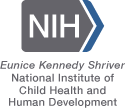Project Proposal
Project Proposal Summary
| (Previous Page) | (Table of Contents) | (Next Page) |
There are five countries in the world that possess completely digitized individual-level censuses for the late nineteenth century: Canada, Great Britain, Iceland, Norway, and the United States. At the end of the nineteenth century, these five nations were closely connected by economic ties and migration flows. All were undergoing rapid social, economic and demographic transitions. The recent availability of an extraordinary volume of individual-level census data in all five countries creates unprecedented opportunities for international collaborative and comparative research. This proposal seeks funding to develop a web-based collaboration that will maximize the usefulness of these data for understanding the North Atlantic world as it entered the industrial age.
The North Atlantic database will provide a remarkable resource for the study of international migration, urbanization, industrialization and the fertility transition. It will allow the comparative investigation of a wide range of topics in social and demographic history, such as the employment of women and children, domestic service, boarding and lodging, marriage patterns, living arrangements of the aged and of children, industrial and occupational structure, life-course transitions to adulthood, the household economy, and internal migration. For each of these topics, the database will provide information on the interrelationships among variables that cannot be obtained from any other source. Most important, the availability of information on entire populations-not just samples-will open important new avenues of research in all five countries. It will allow study of small and dispersed population subgroups and will make possible new kinds of analysis using longitudinal, multi-level, and geographic approaches.
To take advantage of these opportunities, however, research teams in all five countries recognize that efforts must be closely synchronized. The goal of this project is to coordinate existing national projects by means of innovative tools for data development. No funds are requested for data collection. A dozen funding agencies in five countries have contributed substantial resources to develop these data. A small investment in collaboration among these countries will leverage these assets and ensure that the full potential of the data is realized. By working together, we can create a database of exceptional power. This fundamental social science infrastructure will stimulate broad-based comparative investigations of economic development and demographic change.
The North Atlantic Population Project entails eight tasks:
- Maintain close communication via the Internet, by telephone, and in person to develop consistent standards of census interpretation;
- Develop common classification systems for occupation, birthplace, family relationship, and group quarters type that balance the goals of international comparability, retention of detail, and ease of use;
- Create web- based software that will allow researchers in multiple countries to classify census responses in a common data dictionary and to continuously monitor and discuss coding decisions made by other countries;
- Develop a consistent set of constructed variables describing household composition, family interrelationships, urban and metropolitan residence, and other geographic characteristics;
- Document the comparability of census enumeration instructions, procedures and definitions across the five countries;
- Create machine-understandable metadata compliant with the Data Documentation Initiative metadata standard;
- Develop efficient web-based software to optimize and simplify access to the entire database; and
- Disseminate the database through mirrored websites in each country.
This is a collaboration of five organizations that have been central to the creation and dissemination of North Atlantic historical census data: the Minnesota Population Center, the UK Data Archive (Essex), the Norwegian Historical Data Centre (Tromsø), the Digital Archive of the Norwegian National Censuses (Bergen) and the Institute for Canadian Studies (Ottawa). All five organizations are leaders in the development of new methods for web-based electronic data dissemination, and the investigators in each country have published extensively on the international comparability and coding of historical census data.
| (Previous Page) | (Table of Contents) | (Next Page) |



